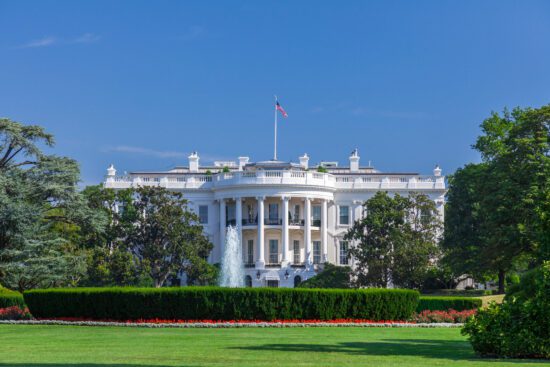One of the primary ways the Ethics & Religious Liberty Commission fulfills its ministry assignment in the public square is through public policy advocacy, both on a federal and on a state level. While the ERLC’s advocacy work in Washington, D.C., remains a vital component of our work, the politically-divided and often lengthy federal processes mean more and more weighty decisions are being made at the state level. As a result, the ERLC recently released our 2024 State Policy Agenda, which outlines state legislation being considered around the country that the ERLC has flagged as items of support or concern in conjunction with our Southern Baptist state conventions and other partners.
These pieces of legislation are best summarized by the four overarching policy priorities determined by the mission of the ERLC:
- protecting life,
- safeguarding religious liberty,
- bolstering marriage and families,
- and upholding human dignity.
Below is a short summary of our policy priorities in these areas in the 2024 State Policy Agenda. You can also learn more about each of these items by reading the agenda itself.
Life
As Southern Baptists, we believe that each person is made in the image of God, and thus, is worthy of protection and dignity, regardless of age, level of ability, or stage of development. As a result, the ERLC continues to advocate for life to be protected, both at the beginning and end of life.
Following the Dobbs decision in 2022, the pro-life movement has seen both monumental gains for life in many states and new and concerning challenges to pro-life advocacy begin to emerge. In response, the ERLC continues to encourage the federal government to fulfill its duty to protect human life and combat the evil of abortion in all forms, while also seeking to protect life on a state level. Though attainable pro-life victories will look different across the country, it is important that each state work toward any positive steps it can to save lives. Here are some aspects of our state pro-life legislative priorities:
- Supporting Abortion Restrictions: Some examples of legislation we are encouraged to see filed this year include Assembly Bill 975 in Wisconsin which would ban abortion at 14 weeks, and the Born Alive Protection Act in Kansas which was filed once again despite being vetoed after passage by the governor in April of 2023. Though we hope to see these states eventually eradicate abortion, we are glad to see steps being taken to save precious preborn lives.
- Oppose Chemical Abortions: For example, New Hampshire Senate Bill 567 directs the New Hampshire Department of Health and Human Services to “protect and expand access to” abortion under the deceptive label of “necessary women’s reproductive health” access including, specifically, the abortion drug mifepristone.
- Promote Pregnancy Resource Centers: Through the ERLC’s Psalm 139 Project and advocacy efforts, we continue to emphasize the excellent help offered by pregnancy resource centers and protect their right to help women choose life by opposing legislation like the Deceptive Practices of Limited Services Pregnancy Centers Act in Illinois that seeks to undermine their work.
- Oppose Taxpayer Funding for Abortion: Some states, such as Missouri through House Bill 1563, are taking necessary action against the misuse of taxpayer money to fund abortion by prohibiting public funds from being expended to any abortion facility or affiliate.
- Oppose Physician-Assisted Suicide: There is a concerted effort in many states to legalize and expand the practice of physician-assisted suicide. For example, Assembly Bill 781 in Wisconsin and Tennessee House Bill 1710 would both permit a patient to seek physician-assisted suicide from their medical provider.
Religious Liberty
Southern Baptists believe “God alone is Lord of the conscience.” The Baptist Faith and Message outlines the basis for the biblical teaching on religious liberty and freedom of conscience that was passed down to us from our Baptist predecessors, many of whom were imprisoned or executed as they stood for these truths.
Currently, religious liberty protections in the United States remain strong and secure. To ensure that this fundamental freedom is safeguarded, the ERLC continues to advocate for the protection of religious liberty for all people throughout the policy arena. We expect some of the following to be key religious liberty priorities in 2024:
- Support Religious Freedom Restoration Acts: Three additional state RFRAs that have been filed in Iowa, Nebraska, and Georgia, and we remain hopeful more will follow.
- Support Conscience Protections for Healthcare Providers: In many states, such as Oklahoma through Senate Bill 1883, Iowa through Senate Study Bill 3006, and Vermont through Health Care Freedom of Conscience Act, states are ensuring healthcare workers are not forced to choose between paving over their consciences and their duty as medical professionals.
- Protect Conscience Rights for Adoptive and Foster Families: Some states are strengthening vital conscience and religious liberty protections for parents participating in the foster care and adoption systems. For example, Tennessee is considering such legislation with the Tennessee Adoptive and Foster Parent Protection Act.
- Safeguard Religious Expression on Campus: States like West Virginia are protecting religious liberty in higher education through Senate Bill 503, which strengthens free expression of religion protections for student groups on the campuses.
Marriage and Family
Families are the foundational institution of our society. In contrast, shifting views in our culture regarding marriage, gender, sexuality, and family have left our society in disarray. We will continue to advocate for policies that promote availability and accessibility in adoption and foster care, provide wrap-around care for vulnerable mothers and families, and promote the rights and responsibilities of parents in raising their children and pushing back on harmful gender ideology. Our advocacy for marriage and family includes:
- Support Biblical Marriage: Some states, such as Florida through House Joint Resolution 167, allow residents to vote on repealing part of the state constitution that defines marriage as solely between one man and one woman.
- Oppose the Surrogacy Industry: Virginia, through House Bill 110, is considering repealing existing Virginia law prohibiting the practice of paid surrogacy within the state.
- Safeguard Children from Harmful Gender Ideology: Many states have already taken action to ban “gender transitions” from being performed on children, including Texas through the passage of Senate Bill 14, which took effect in September 2023. Two additional pieces of legislation being considered this year are the Child Protection Act in Georgia and the Children Deserve Help Not Harm Act in South Carolina.
- Protect Women in Sports: Virginia is pushing back against the influx of biological men infiltrating women’s sports as a result of harmful gender ideology through the Women’s Sports Bill.
- Protect Children from Pornography: Last year, some states, including North Carolina and Utah, enacted age verification requirements to prevent minors from accessing pornography. This resulted in sites like PornHub completely removing access to this content in the state. This year, several other states are including similar legislation, such as West Virginia House Bill 4867 and Indiana Senate Bill 17.
- Help Families Flourish: Some proposals, such as Senate Bill 171 in Illinois, help parents to care for their children by making items like diapers, baby wipes, and infant formulas tax exempt. Other states, such as Kansas through House Bill 2429, are establishing “alternatives to abortion programs” that promote childbirth, provide adoption assistance, and support pregnancy support centers and maternity homes.
Human Dignity
Every person is made in the image of God and is worthy of protection and dignity, regardless of age, race, nationality, level of ability, or stage of development. The Bible calls us to seek justice and righteousness, especially for the vulnerable. As we advocate for fair and impartial judgment and equitable treatment of the oppressed, we bear witness to a God who is ultimately the just Judge and to a gospel that saves all who believe. These realities spur on our commitment to the following priorities:
- Oppose Expansion of Substance Abuse and Addiction: Though the federal government has been actively working to decriminalize marijuana, it remains highly addictive and increasingly accessible. Some states, such as Virginia through House Bill 698 and Kansas through Senate Bill 135, are seeking to legalize marijuana or medical cannabis sales within their state.
- Combat the Predatory Lending Industry: Some states, such as Washington through House Bill 1918 and South Carolina through Senate Bill 67, are pushing back against predatory lending practices by capping the interest rate on a payday loan at 36%.
- Opposition to Gambling: Through legislation like Senate Bill 1434 in Oklahoma, Senate Bill 386 in Georgia, and legislation we are anticipating being filed in Alabama, several states are considering expansions this year to gambling in their state.
- Supporting Criminal Justice Reform: Some states, such as Florida through the “Air Conditioning in Inmate Housing” bill, are considering legislation that would respect the dignity of those in prison and their safety by requiring air conditioning units in good working order to be available for all housing units. Other states, such as Arizona through House Bill 2047, would create a transition program through partnerships with local nonprofits to help perpetrators of nonviolent crimes assimilate into the local community after serving their sentence.
- Ending the Epidemic of Mass Shootings and Gun Violence: Tennessee, is taking a multi-front approach to the epidemic. For example, House Bill 1640 and House Bill 2101 ensure court records noting an individual’s mental health and likelihood to cause harm are added to the background check system. Additionally, Senate Bill 2342 makes it a criminal act to threaten mass violence, and House Bill 1625 creates a “duty to warn” if an actual threat of bodily harm is detected.
- Stopping Sexual Abuse: Reforms such as Senate Bill 5280 in Washington and Senate Bill 87 in Kansas would expand requirements for clergy and ministers to report the abuse or neglect of children. Missouri is also considering two proposals, House Bill 1741 and House Bill 1868, that provide greater protections to nonprofits that share credible abuse allegations with other nonprofits and expand protections for victims who wish to provide testimony through video.










